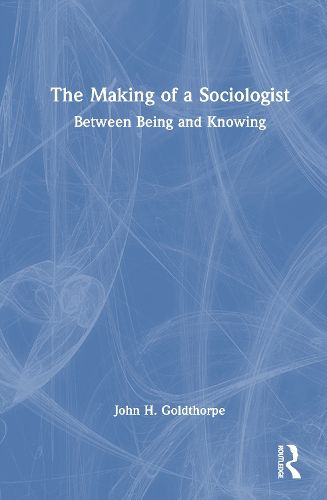Readings Newsletter
Become a Readings Member to make your shopping experience even easier.
Sign in or sign up for free!
You’re not far away from qualifying for FREE standard shipping within Australia
You’ve qualified for FREE standard shipping within Australia
The cart is loading…






This book offers a journey through the problems and the progress of the discipline of sociology in the UK and Europe throughout the second half of the twentieth century via an exploration of seven social settings from the life of a now eminent sociologist. It conceptualises the complex relation that exists between being and knowing, and between the personal knowledge that comes from lived experience and the essentially impersonal knowledge that any science seeks to pursue. The seven - very contrasting - settings are described in detail, together with reference to some of their leading personalities, such as David Glass, Karl Popper, Norbert Elias, Sebastian Sprott, Richard Hoggart, Noel Annan, E. M. Forster, Goesta Rehn, Chelly Halsey, Fred Hirsch and Juergen Habermas. In each case, the author shows how his lived experience within these settings formed a substratum of his sociology and how he navigated the line between personal knowledge as a creative resource and personal knowledge as potential bias using methodological discipline. It will ultimately appeal to those with interests in sociology, philosophy of science, sociological histories, and biographical methods.
$9.00 standard shipping within Australia
FREE standard shipping within Australia for orders over $100.00
Express & International shipping calculated at checkout
This book offers a journey through the problems and the progress of the discipline of sociology in the UK and Europe throughout the second half of the twentieth century via an exploration of seven social settings from the life of a now eminent sociologist. It conceptualises the complex relation that exists between being and knowing, and between the personal knowledge that comes from lived experience and the essentially impersonal knowledge that any science seeks to pursue. The seven - very contrasting - settings are described in detail, together with reference to some of their leading personalities, such as David Glass, Karl Popper, Norbert Elias, Sebastian Sprott, Richard Hoggart, Noel Annan, E. M. Forster, Goesta Rehn, Chelly Halsey, Fred Hirsch and Juergen Habermas. In each case, the author shows how his lived experience within these settings formed a substratum of his sociology and how he navigated the line between personal knowledge as a creative resource and personal knowledge as potential bias using methodological discipline. It will ultimately appeal to those with interests in sociology, philosophy of science, sociological histories, and biographical methods.